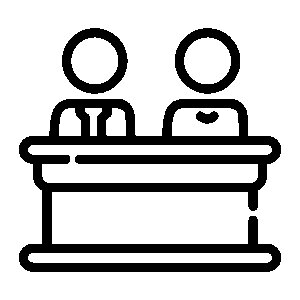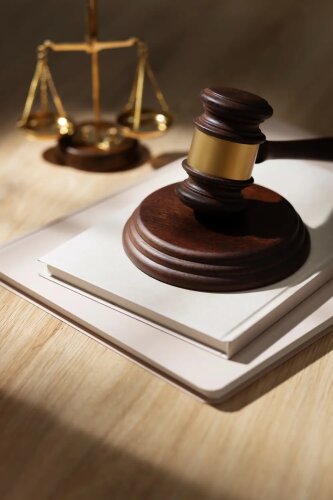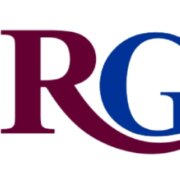Best Child Abuse Lawyers in Botswana
Share your needs with us, get contacted by law firms.
Free. Takes 2 min.
Free Guide to Hiring a Family Lawyer
Or refine your search by selecting a city:
List of the best lawyers in Botswana
About Child Abuse Law in Botswana
Child abuse in Botswana is a serious concern, encompassing a range of actions that harm or threaten to harm a child's physical, emotional, or psychological well-being. The government and various organizations work together to combat these issues by enforcing laws specifically designed to protect children. Reports of child abuse are handled by law enforcement and social services, which are tasked with ensuring the safety and well-being of affected children. Botswana recognizes the paramount importance of advocating for children's rights and has implemented legislation to reflect this commitment.
Why You May Need a Lawyer
There are several common situations where people may require legal assistance concerning child abuse in Botswana:
- If you or someone you know is accused of child abuse, legal representation is crucial to navigate the criminal justice system.
- Victims of child abuse or their guardians may need a lawyer to ensure their rights are protected and to seek justice against the abuser.
- If a child is removed from a home due to allegations of abuse, parents or guardians may need legal help to understand their rights and obligations.
- Legal advice can also be essential for navigating issues involving custody, visitation, or protective orders in the context of child abuse.
Local Laws Overview
Botswana's legal framework concerning child abuse involves several key statutes and regulations aimed at protecting children:
- Children's Act: This is the primary legislation focused on child protection, setting out rights, protections, and guidelines for the care and treatment of children.
- Penal Code: This includes provisions that make it a criminal offense to abuse children, with harsh penalties for those found guilty.
- Domestic Violence Act: This legislation provides for protective orders and measures to address situations of abuse within the home, which can include child abuse.
- Customary Law: In some cases, customary law may be taken into account, but it is subject to the limits set by the country's formal legal standards, particularly in the context of children's rights and protections.
Frequently Asked Questions
What constitutes child abuse under Botswana law?
Child abuse includes physical, emotional, sexual abuse, and neglect. It involves any action or lack of action that endangers a child's well-being.
How do I report suspected child abuse?
Suspected child abuse can be reported to the police, local social welfare offices, or child protection services. Additionally, anonymous reporting is often encouraged to ensure the child's safety.
What happens after child abuse is reported?
Once reported, authorities will investigate the allegations. This could involve social workers, law enforcement, and possibly medical professionals to assess and document the abuse.
Can child removal occur without parental consent?
Yes, if authorities determine that a child is in immediate danger, they can remove the child from the home without parental consent to ensure their safety.
What legal rights do accused individuals have?
Accused individuals have the right to legal representation and a fair trial. They are presumed innocent until proven guilty in a court of law.
How can a lawyer assist a victim of child abuse?
A lawyer can help navigate the legal system, represent the victim's interests in court, and ensure the victim accesses necessary services and protections.
Are there any support services available for child abuse victims?
Yes, numerous support services, such as counseling and safe housing, are available through governmental and non-governmental organizations.
Can child abuse cases be settled out of court?
While some matters may be resolved through mediation or alternative dispute resolution, serious child abuse allegations typically require a formal court proceedings.
How does one obtain a restraining order in Botswana?
Restraining orders can be obtained through the courts, requesting protection or removal of an abuser from the home when abuse is present.
What should I do if I disagree with a child welfare decision?
If you disagree with a decision made by child welfare authorities, consulting a lawyer can help you understand your rights and possibly challenge the decision through legal channels.
Additional Resources
If you're seeking further assistance or information regarding child abuse in Botswana, consider contacting the following resources:
- Ministry of Youth, Gender, Sport, and Culture: They offer various services related to child protection.
- Botswana Police Service: They can be consulted for filing reports and urgent protective assistance.
- Non-Governmental Organizations (NGOs) such as Childline Botswana: These organizations offer counseling, educational resources, and advocacy for children's rights.
Next Steps
If you need legal assistance regarding child abuse in Botswana, you should:
- Contact a qualified lawyer who specializes in family law or child protection cases. They can provide guidance based on your specific situation.
- Gather any relevant documentation or evidence related to the case, such as police reports, medical records, or witness statements.
- Explore options for legal aid if you're unable to afford private legal services. Many organizations offer support or referrals to pro bono services.
Lawzana helps you find the best lawyers and law firms in Botswana through a curated and pre-screened list of qualified legal professionals. Our platform offers rankings and detailed profiles of attorneys and law firms, allowing you to compare based on practice areas, including Child Abuse, experience, and client feedback.
Each profile includes a description of the firm's areas of practice, client reviews, team members and partners, year of establishment, spoken languages, office locations, contact information, social media presence, and any published articles or resources. Most firms on our platform speak English and are experienced in both local and international legal matters.
Get a quote from top-rated law firms in Botswana — quickly, securely, and without unnecessary hassle.
Disclaimer:
The information provided on this page is for general informational purposes only and does not constitute legal advice. While we strive to ensure the accuracy and relevance of the content, legal information may change over time, and interpretations of the law can vary. You should always consult with a qualified legal professional for advice specific to your situation.
We disclaim all liability for actions taken or not taken based on the content of this page. If you believe any information is incorrect or outdated, please contact us, and we will review and update it where appropriate.
Browse child abuse law firms by city in Botswana
Refine your search by selecting a city.















